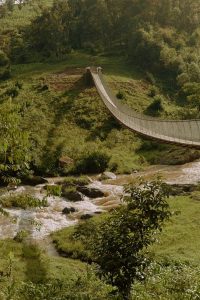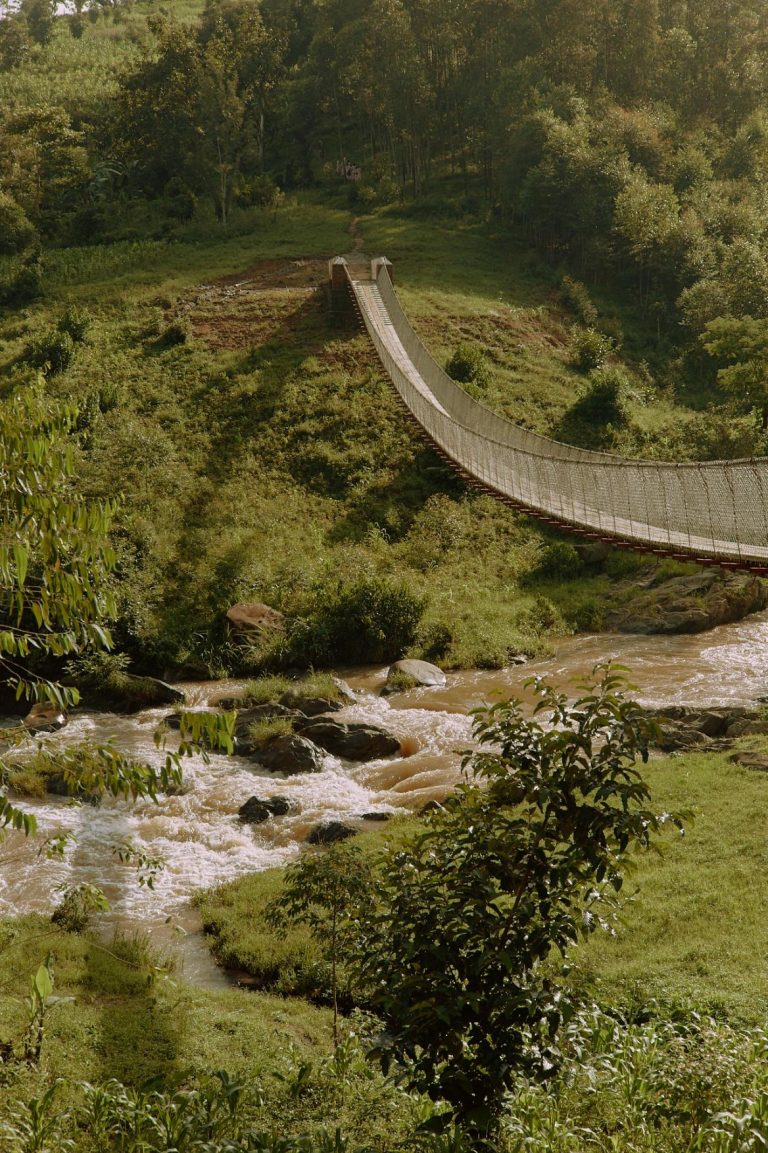Lack of access to critical services due to a lack of transportation infrastructure (such as bridges) is the root cause of poverty for nearly one billion people globally. With a motivation to break the cycle of extreme poverty, Bridges to Prosperity (B2P), since 2001, has completed more than 370 bridges in over 20 countries, granting last mile access to more than 1.3 million people.
This study seeks to assess the impact of trailbridges on adjacent paths and roads by analyzing and measuring the change volume before and after bridge construction using publicly available satellite imagery. This project is particularly important in a field where vehicular transportation is frequently prioritized over pedestrian and motorcycle transport. The evaluation methodology involves manual feature extraction and measurement of the areas of visible foot paths, before and after the trailbridges were constructed at 65 sites within the East African countries of Rwanda and Uganda.
The study concludes from preliminary investigations that trailbridges create improved access, and in some areas spur mobility focused infrastructure developments such as Umuganda (“coming together in common purpose”) community road maintenance projects. This is justified by observed and measured changes in 40 out of the 65 analyzed sites, where footpath areas increased on average of about 68.77% within a 3-year average timespan between the data collection periods.
Additionally, the possibility of further analysis to draw a correlation between the improved access created through the provision of trailbridges, and socioeconomic growth within the geographical regions of the project sites, is proposed for future studies.
E4C 2021 PROGRAM MANAGEMENT TEAM: Mariela Machado, Senior Program Manager; Grace Burleson, Research Manager; Marilynn Holguín Clover, Program Coordinator; Jonathan Kemp, Program Associate
ADVISORS AND COLLABORATORS: Abbie Noriega, VP of Evaluation, USA
This research was completed as part of the 2021 E4C Fellowship program. Learn more about the Fellows who worked on this research collaboration by connecting with them on LinkedIn: Abdul Rashid Mussah, and Elisabeth Vitswamba.


No Comments.